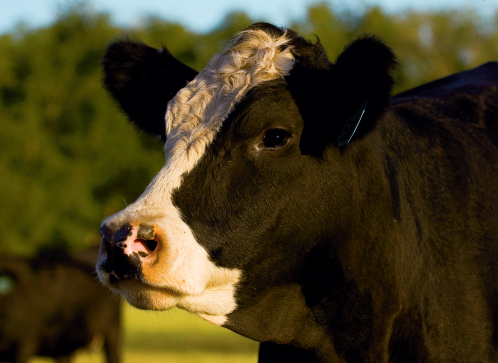
In the case of animal and food safety, timing is everything.
Michigan’s animal identification program, which uses radio frequency identification (RFID) tags, is a true testament to this fact significantly decreasing the amount of time it takes the Michigan Department of Agriculture and Rural Development (MDARD) to trace livestock to the farm of origin.
“RFID tags make very few mistakes and accuracy is very valuable,” says dairy farmer Kevin Kirk.
The RFID tags allow MDARD to track the animal back to the original source if a food safety issue should occur. The state’s previous system used metal ear tags, but Kirk says there were a lot of inaccuracies and it took longer.
Dr. Michael Vanderklok, MDARD bovine TB program manager, agrees and says there are significant differences between the metal tags and the RIFD tags.
“RFID tags can be read at a distance, which is very efficient and very quick. They’re virtually 100 percent accurate,” he says. “They also create data that can be transferred instantaneously. This is a huge savings in accuracy, time and efficiency. And a savings in time translates to savings in money.”
RFID tags are read with a scanner or reader. These can be set up in a central location where all cattle might pass, so all their tags will be read. The premises identification of the farm of origin is downloaded into a database. Farmers use their system to record medical records, age, milk production (in the case of dairy cows), amount of feed a cow receives and more. This information stays with the farm and is not passed on to the state or federal government.
The tags can be used on any animal, but Michigan is currently only using them on sheep, goats, cattle, bison, and most recently, deer and elk farms. Dr. Rick Smith, bovine TB program coordinator and assistant state veterinarian for ruminant diseases, says the state started the identification program on bovines, but they expanded the program to cervids after seeing how efficient it was. In Michigan, RFID tags are required for movement of cattle and bison, and voluntary for other species.
“The only information we are interested in is the traceability – the premises identification of the farm the animal was born on,” Dr. Smith says.
“Using RFID tags to track livestock gives farmers more flexibility,” Vanderklok adds. “There are just so many great spin-off effects.”
I bought goats without tags and now I need to get some how do I get this done